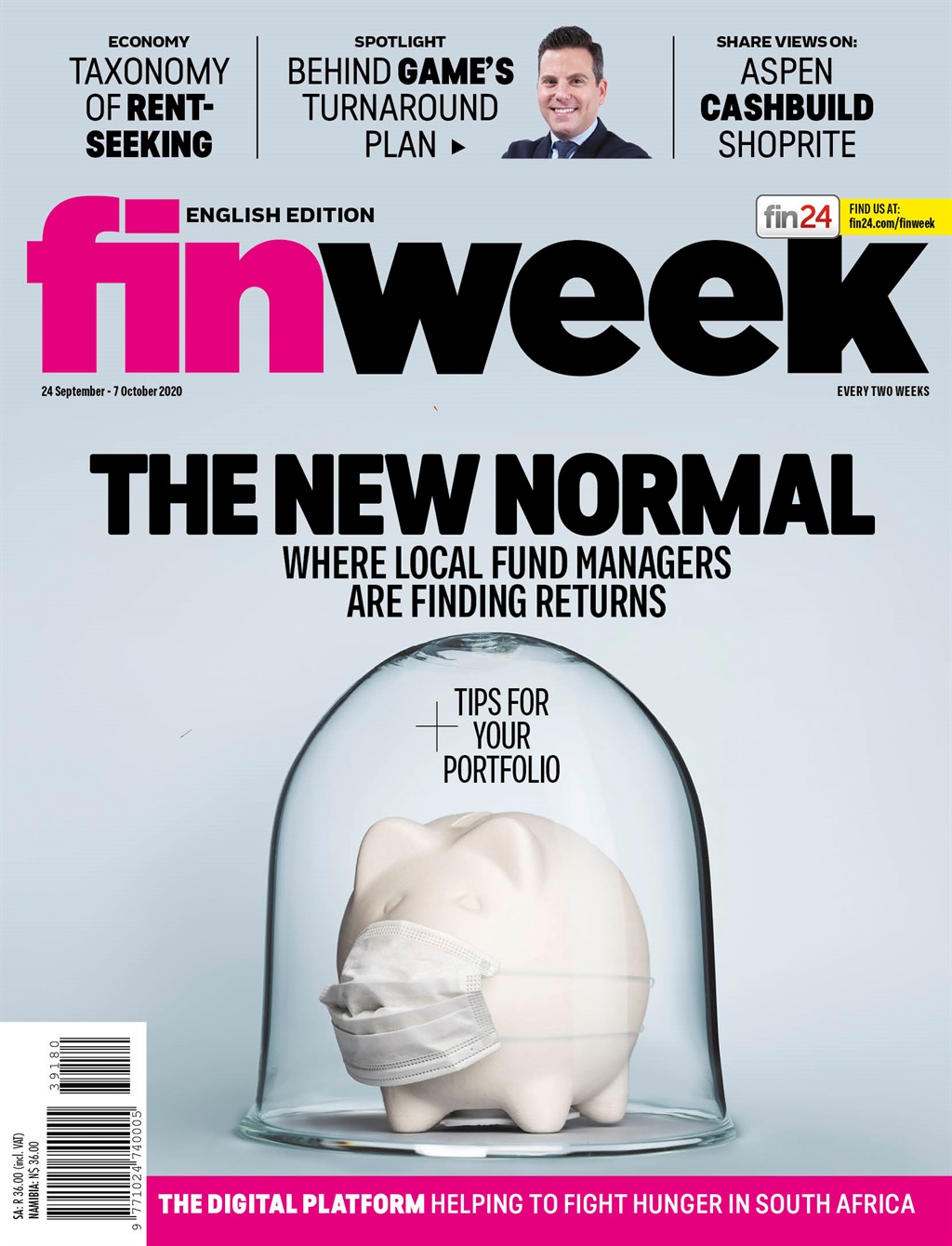
Many South Africans’ financial affairs are under far more strain than a year ago. Experts provide some tips on how to manage those big expenses in the wake of the lockdown’s severe impact on household incomes.
Spring has sprung and so has a virus that has not only permeated people’s health but personal finances too. An online survey of 1 000 adults from different regions in South Africa, conducted between 31 July to 3 August 2020 by TransUnion, indicates that the financial impact of the Covid-19 crisis on local consumers remains high.
The number of consumers saying their household income has been negatively impacted dropped to its lowest level (77%) since the first round of surveys in April, and much lower than the 84% peak observed in June. The respondents reported that job losses continue to increase, with 21% of financially-impacted consumers reporting that they have lost their jobs because of the pandemic, up from 10% in April.
The pandemic has affected and will most likely continue to affect household finances beyond 2020. As we embark on a much required financial spring-cleaning process, we look at how various financial priorities – from vehicle financing to the mortgage market, insurance and saving for retirement and emergencies – differ this time around.
Vehicles
Vehicle sales in the first half of 2020 were severely impacted by the restrictions on operations due to the government-imposed lockdown. The halt to dealer sales in March and April impacted sales tremendously, says Lebogang Gaoaketse, WesBank’s head of marketing and communication.
“As a result, year-to-date sales for the first half of 2020 were 36.9% down on the same period last year,” he tells finweek.
New passenger car sales registered a substantial decline of 33.4% to 19 264 in June compared with 28 931 in June 2019, while the August 2020 new passenger car sales at 19 545 units had registered a decline of 9 458 cars, or a fall of 32.6% compared with the 29 003 new cars sold in August last year, according to data from the National Association of Automobile Manufacturers of SA (Naamsa).
The association expects activity in the new vehicle market to remain low for the remainder of 2020 due to uncertainties relating to the economic fallout of the pandemic, and as consumers and businesses continue to adapt to short-term budget pressures.
Any vehicle purchase now should be a well-informed consideration, says Gaoaketse.
While buying a new car is a wonderful experience driven by lots of emotion, he emphasises that it remains one of the most significant decisions in South Africans’ household budgets. WesBank advises consumers to remain mindful of their debt levels despite how attractive these deals seem. It urges consumers to fully understand the terms of respective finance offers and fully interrogate their affordability.
Many consumers should also consider the used-car market to combat affordability levels, says Gaoaketse. “It is prudent to consider service and maintenance plans, as well as warranties, when considering this approach and source these vehicles through reputable dealers.”
Insurance
As consumers continue to quantify the impact of the pandemic on their finances, some financial mistakes, such as cancelling insurance, should be avoided in these unprecedented times, warns Dhashni Naidoo, FNB consumer education programme manager. “Insurance should not be used as a mechanism to free up cash,” she says.
“Once a policy lapses or you cancel it, you expose yourself and your family to greater risk. It may also result in higher premiums when you take up insurance again in the future or you may be excluded from certain benefits. If necessary, rather contact your insurance provider to see if you can reduce your premiums, as opposed to not paying or cancelling your policy.”
The insurance industry is generally well-prepared for major loss events, including pandemics. Insurers have been responding to the widening Covid-19 outbreak on multiple fronts – including how they underwrite, their pricing and reserving, policy wordings, and reinsurance coverages. Due to the lockdown restrictions, risk profiles have changed during this period. The expectation is also that new ways of working and living will result in risk profile changes in future, according to Attie Blaauw, head of personal lines underwriting at Santam.
Vehicle insurance
Santam refunded 20% of vehicle premiums paid during the month of April due to the reduced risk exposure during level 5 and 4 of the government- imposed lockdown. Select clients who struggled to honour debit orders were supported for a period of two months, says Blaauw.
Danie Matthee, chief executive of OUTsurance, tells finweek that they were able to provide clients with a 15% discount on all motor and goods-in- transit premiums on both their business and personal insurance in May 2020 and a further 10% discount on premiums for those clients who were still driving less than normal in June 2020.
Apart from providing clients with decreased short- term insurance premiums, OUTsurance also reduced the claims excess amount payable for the period from April to end-June 2020. Clients could amend their cover to pay a lower premium, which could be switched back to the full cover at the same premium as before, according to Matthee.
“We further extended the period for non- payments that would normally have resulted in a cancellation of cover,” he says. “These changes were implemented across the business.”
Credit life insurance
As consumers continue to weigh the impact of Covid-19 on their finances, many will also be considering options to protect themselves from financial difficulties, according to FNB. It kickstarted a new Covid-19-related digital application process to assist customers to process credit insurance when applicable, before finalising additional cash flow relief measures with each customer.
“Credit life (insurance) has been around for a long time and we went live with cover on loss of income on our products in August 2017. Since then, it has always been one of our primary considerations for customers who are in financial difficulty,” says Lee Bromfield, CEO of FNB Life.
If a customer is permanently employed and they become unemployed or are unable to earn an income due to contracting Covid-19 or due to measures put in place to prevent the spread of the virus, all their obligations under the credit agreement that become due and payable can be paid either for 12 months during the remaining repayment period of the credit agreement, or until they are able to find employment or earn an income, whichever is the shorter period.
“It’s important for customers to know what they are covered for to make informed financial decisions, especially in light of Covid-19,” says Bromfield.
Life insurance
SA life insurance products proved very resilient during the Covid-19 pandemic and stood up well in providing customers with the required protection, according to Petrie Marx, product actuary at Sanlam Individual Life.
“We are passionate about giving our customers solutions to their risk-protection needs, and those needs have not changed during the pandemic – so there is little reason to change the terms and conditions of our products,” he tells finweek.
OUTsurance has also not introduced any new terms and conditions of cover and claims because of Covid-19, according to Matthee. “We have set aside additional reserves in order to pay for higher claim volumes expected due to the virus. We are monitoring developments of the virus closely in order to gain a better understanding of the long-term impact on mortality.”
As there is still some uncertainty around the impact of Covid-19, Matthee says the insurer believes that it is premature at this stage to make any changes to their rating structure for new clients.
The only change that Sanlam made on life insurance policies, which will only apply to new applications going forward, was done on sickness and income protection products with very short waiting periods, where future claims as a result of SARS-type outbreaks such as Covid-19 will be subject to a 30-day waiting period.
Although Covid-19 is a new disease that is not listed as a claimable event in insurance policies, Marx confirms that it remains fully covered if that is the cause of any of the claimable events.
Events such as this global pandemic result in a re-evaluation of priorities for many people. Matthee says they have seen an increase in demand for life insurance products over the last few months while Marx says the Covid-19 pandemic has again made us all aware of life’s risks and our own vulnerabilities, so the demand for life insurance products remained in place for them too.
“In certain segments of life insurance products there has been pressure on consumers to keep up payments; lapse rates remain a key watch item for us as the economic impact of the lockdown unfolds,” says Matthee.
In addition to unaffordability, another limiting factor, especially at first, according to Marx, was the ability of financial advisers to meet with customers. He says a lot of effort went into enabling intermediaries to interact with their customers on digital platforms to provide them with the necessary advice. OUTsurance expanded digital capabilities on their app to allow for easier self- service by customers.
Mortgage market
When the SA Reserve Bank’s Monetary Policy Committee voted to cut the country’s interest rate by a further 0.25 percentage points in July, it took the total reduction in 2020 to three percentage points, thereby lowering the repo rate to 3.5%. This reduced the prime and the base home loan rate to a further historic low of 7%.
After the rate cuts, FNB issued a statement, saying that it does not expect to see any meaningful property demand boost emanating from interest rate cutting specifically, but still believes it to be an important source of support for the property market.
“Rather than bolstering property demand, the key role of rate cuts at present will be in providing relief to current property owners ... Cutting costs on property owner debt is thus crucial.”
Nevertheless, annual house price growth rebounded to 1.4% year-on-year in July, down from an upwardly-revised 0.7% in June and 0.6% in May, according to the latest FNB House Price Index.
FNB senior economist Siphamandla Mkhwanazi says the bounce-back in prices reflects the unexpectedly rapid recovery in market activity since the easing of lockdown restrictions. The volume of new mortgage applications rebounded beyond levels before the lockdown.
Demand picked up under level 3 of the national lockdown, predominantly in the price bands below R3m, according to Samuel Seeff, chairman of the Seeff Property Group. “Buyers who are committed and keen to take advantage of the historically low interest rate and favourable mortgage lending climate have wasted no time in moving ahead with their property transactions.”
Given the economic outlook, Seeff says he expects the favourable buying conditions to remain throughout the year. “The recession and decline of the inflation rate to a historic low means we could be looking forward to another 100 basis points shaved off the interest rate in all by year-end,” he says.
Currently, much of the retreat in supply comes from higher price categories, presumably as sellers reassess their decisions amid a challenging macroeconomic environment, according to Mkhwanazi. He says while home shoppers are looking for bargains, homeowners are weighing selling against refinancing (given the historically low interest rates), and this appears to be supporting prices.
Anecdotal evidence from FNB also shows rising demand for bigger properties (mainly freestanding homes), notably in less crowded second-tier cities. It says the growth of working from home is creating demand for bigger homes, which can offer additional features such as home gyms, and conducive environments for home-schooling.
Retirement funds and saving
As financial pressure increases, cancelling a retirement fund might be an option. Pension and provident contributions shouldn’t be stopped if you are paid an income, as they are based on your salary, according to Rita Cool, a certified financial planner at Alexander Forbes.
“If you are not receiving a salary, then no contributions will be deducted, and the lockdown shouldn’t affect your contributions. If your salary is reduced during the lockdown, your contributions will also be less because they are a percentage of your salary,” says Cool.
What makes matters worse is that many South Africans entered the lockdown with limited emergency savings, and what savings they did have were mostly in a retirement fund through their employer, says Andrew Davison, head of advice at Old Mutual Corporate Consultants.
He says that the impact of Covid-19 is genuinely unprecedented and that times like these require a different approach – one that carefully weighs up the pros and cons of using money set aside for retirement as an emergency fund or staying invested.
“After a downturn in markets, the prices of assets are at cheaper levels, meaning that cashing in locks in losses and ceasing contributions passes up the opportunity to buy in at attractive prices. In both cases, the investor gives up the chance to participate in any recovery, however uncertain that might seem,” says Davison.
He says that debt is not the answer, but a well- constructed emergency fund is. If you do not have an emergency fund in place, Davison recommends speaking to your financial adviser to ascertain which investments in your current portfolio could possibly be accessed to achieve the same result without compromising future goals and additional cost considerations.
Many people do not realise that when you notify your retirement fund of your retirement, it can take months for the first payment to reach the bank account. An emergency fund will come in handy during these times and provide a readily available form of income at no additional cost, he says.
Another way to save money, according to Davison, is for homeowners to put extra money into their bonds each month, which also reduces the amount of interest you owe on your bond, saving you money.




 Publications
Publications
 Partners
Partners













